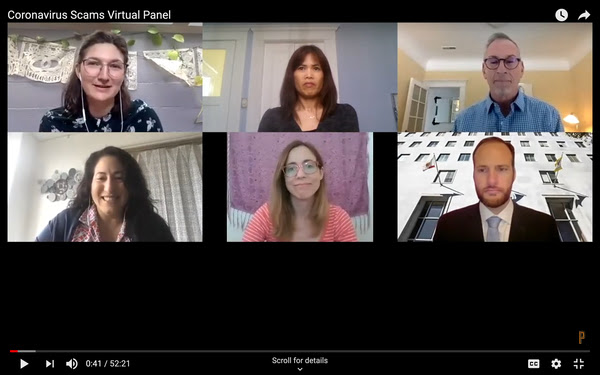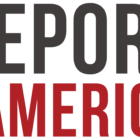The Public Press hosted a conversation April 9 to help the community understand how to identify and prevent phone and email scams that target the vulnerable — the elderly, people who are isolated or who have limited digital literacy.
Our panelist were:
- Chesa Boudin, San Francisco District Attorney
- Shawna Reeves, Director of the Elder Abuse Prevention program at the Institute on Aging
- Glen Fishman, Senior Program Coordinator for Elder Abuse Prevention at the Institute on Aging
The event was moderated by Laura Wenus, host of “Civic,” the Public Press’ daily news and public affairs radio show and podcast.
RESOURCES AND LINKS
San Francisco District Attorney’s Office
- District Attorney’s Office website
- Overview of Covid-19 Scams
- Victim Services Division — 628-652-4100
- Consumer Hotline — 415-551-9595
How the Elderly Can Stay Connected
- Friendship Line — ioaging.org and 800-971-0016
- Covia — This community-based nonprofit has two programs: Well Connected offers activities and educational programs via phone, and Social Call matches volunteers with seniors for social conversations — covia.org and 925-956-7400
- Little Brothers, Friends of the Elderly — littlebrotherssf.org and 415-771-7957
Sign Up for Alerts
- AARP Fraud Watch Network
- Better Business Bureau — Tips on COVID-19
- U.S. Deptartment of Justice — coronavirus fraud and scams
- U.S. Federal Trade Commission — avoiding coronavirus scams
Reporting Scams
- San Francisco District Attorney’s Office hotline to report scams — 415-551-9595
- Adult Protective Services — 415-355-6700 or the city’s Human Services Agency
Legal Assistance
- Legal Assistance to the Elderly — 415-538-3333
- Open Door Legal — 415-735-4124
- Housing and Economic Rights Advocates — 510-271-8443
- California Advocates for Nursing Home Reform — 415-974-5171
- San Francisco Bar Association — 415-989-1616
Additional Resources
- California Department of Business Oversight — 866-275-2677
- “Be Vigilant Against Scams and Unlawful Activities Seeking to Exploit Heightened Economic Anxieties” — from the California Department of Business Oversight
- “Resources on Gender-Based Violence during COVID-19 Crisis”— from San Francisco’s Department on the Status of Women
- Listen to a recent “Civic” show featuring Glen Fishman from the Institute on Aging











